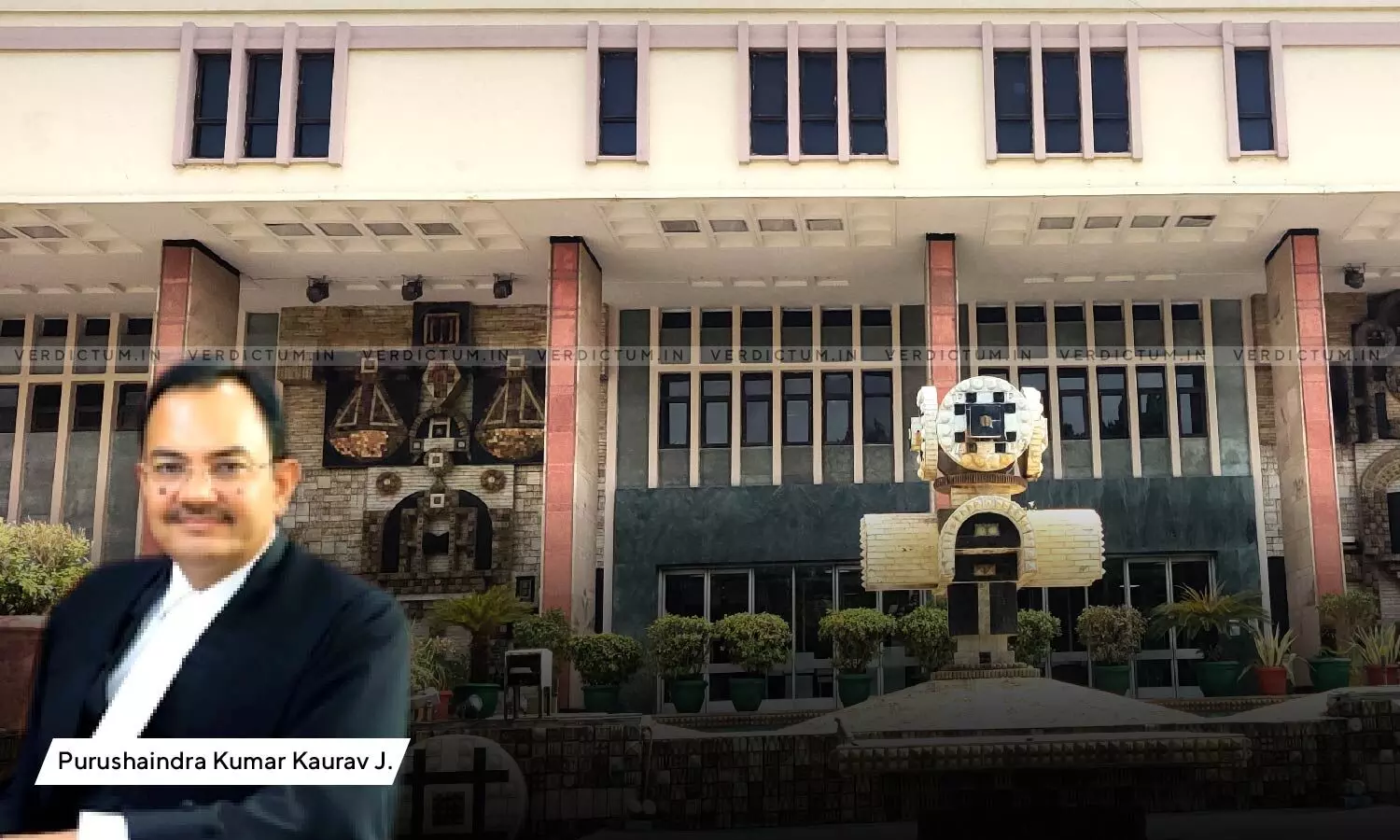
Delhi High Court Upholds 12-Year Imprisonment Given To A Father For Raping Minor Daughter
 |
|The Delhi High Court while dealing with a criminal appeal filed by the accused upheld the decision of the Trial Court in which he was convicted for raping his minor daughter under Section 6 read with Section 5(n) of the Protection of Children from Sexual Offences Act, 2012 (POCSO) and was sentenced to undergo rigorous imprisonment for 12 years with a fine of Rs. 10,000/-.
Justice Purushaindra Kumar Kaurav while relying upon the case of State of Punjab v. Gurmit Singh & Ors. (1996) 2 SCC 384 stated –
"The Hon‟ble Supreme Court, in the matter of State of Punjab v. Gurmit Singh & Ors., illustrating the reliability of the statement of the prosecutrix, stated that minor contradictions or insignificant discrepancies in the statement of a prosecutrix should not be a ground for throwing out an otherwise reliable prosecution case. Evidence of the victim of sexual assault is enough for conviction and does not require corroboration unless there are compelling reasons for seeking corroboration. The court may look for some assurances of her statement to satisfy judicial conscience."
Advocate Anu Narula appeared on behalf of the appellant i.e., the accused while Additional Public Prosecutor Utkarsh appeared for the respondent i.e., the State.
Brief Facts of the Case –
On April 24, 2014, at about 7:39 pm, the police were informed by a caller that the husband of the caller had committed rape on her daughter, aged about seven years. The above-said information was assigned to Women Sub-Inspector Chandra Kanta for reconnoitering. The sub-inspector reached the spot and found the mother of the child victim who stated that she has been residing near Nehru Academy School, along with her family. She stated that she works as a housemaid, and her husband mostly remains at home and is a habitual drinker. Hence, when she left her home for work and returned at about 7:00 pm, her daughter i.e., the child victim told her that when she went to take water, her father had closed the window and door of the room and opened the chain of his pant and put his private part to her mouth and, thereafter, forcibly inserted his private part into her vagina.
Police endorsed her statement and registered the case under Sections 376/377 IPC and under Section 6 of the POCSO Act. During the course of the investigation, police collected the evidence, both oral and documentary, and arrested the accused. After completion of the investigation, police filed the chargesheet in the court; and offences under Section 6 read with 5 (n) POCSO Act 2012 were framed against the accused, to which he pleaded not guilty and claimed trial. Thereafter, the prosecution examined 18 witnesses in support of charges before the Trial Court. The appellant claimed innocence and stated that the child victim had deposed before the Court at the instance of her mother who did not want to live with him. However, after evaluating all the evidence, the Trial Court found the appellant guilty of committing rape. Hence, being aggrieved by such a decision, the appellant moved to the High Court.
The High Court in the above matter observed –
"In the present matter, the testimonies of the child victim (PW1), mother of the child victim (PW2) and sister of the child victim (PW4), so far as the incident in question is concerned, are consistent and do not suffer from any apparent material inconsistencies. Under such circumstances, the conviction cannot be interfered with on the ground of inconsistencies in the evidence of the prosecutrix. Therefore, this argument of the learned counsel for the appellant is hereby rejected."
The Court in this regard further noted that "So far as the argument that the victim was tutored by the mother of the victim/wife of the appellant as she did not wish to reside with the accused anymore is concerned, non-cordial relations between the mother of the victim and the accused cannot lead to a presumption of tutoring when the account of the victim in regard to the offence does not suffer from any inconsistencies."
The Court therefore held –
"On the basis of the aforesaid, there are no major inconsistencies between the witness testimonies of the prosecution being the mother of the victim, the sister of the victim and the victim herself, and therefore, this court does not find any justification to take a contrary view."
Accordingly, the Court upheld the conviction and sentence of the accused and dismissed the appeal.
Cause Title – Ram Guru v. State (NCT of Delhi)
Click here to read/download the Judgment